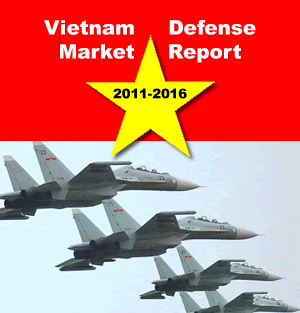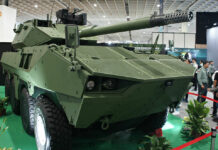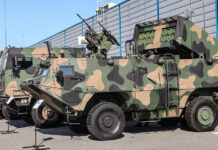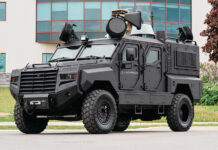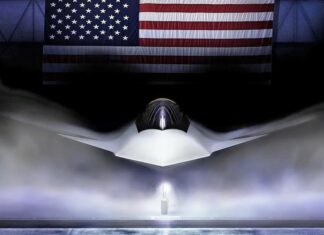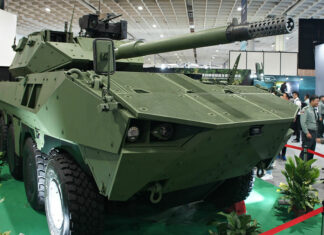Opportunities and Entry Strategies 2011-2016
The Vietnamese defense industry is expected to undergo a period of investment with a considerable increase of expenditure from 2011–2015 (the forecast period), according to a survey by ICD Research. This investment comes from the increasing necessity to improve the now outdated Vietnamese military technology and a wariness of China’s growing military power, which is perceived as hostile to Vietnam.
Vietnam is also expected to increase spending on homeland security, as its location near maritime trade routes and shared borders with several other countries make it a prime location for illicit drug and people trafficking as well as smuggling. As such, Vietnam will need to invest to improve border surveillance and critical infrastructure.
The Vietnamese defense industry is not self-sufficient, and Vietnam is dependent on foreign imports to supply its military. Russia has dominated Vietnam’s defense imports throughout 2006–2010 (the review period) and this is expected to continue in the forecast period. Vietnam has, however, undertaken a policy of building cordial relationships with its neighbors and western countries to have potential allies against China’s growing influence. As a result of this policy there are new opportunities for entry into the Vietnamese defense industry.
Vietnam’s defense expenditure expected to increase at a CAGR of 14.32% during the forecast period
The Vietnamese defense expenditure, which was around US$3 billion in 2011, is expected to reach around US$5 billion in 2015. It recorded a compound annual growth rate (CAGR) of 19.13% during the review period and is expected to grow at a CAGR of 14.32% during the forecast period. This defense expenditure growth should be accompanied by a modest growth in defense expenditure as a percentage of GDP from 2.5% in 2011 to 2.8% in 2015. Overall, the country is expected to spend an estimated US$18.6 billion on its armed forces during the forecast period, of which approximately US$6.4 billion will be allocated for capital expenditure.
During the review period, the country allocated an average of 31% of its defense budget for capital expenditure and 69% for revenue expenditure. However, during the forecast period, the share of capital expenditure in the overall defense budget is predicted to increase to an average of 35%. The main reasons for this growth in capital expenditure are that Vietnam is seeking to modernize its armed forces and has planned a number procurement programs to run during the forecast period. Capital expenditure also saw a slight increase in 2009, when Vietnam signed deals for the procurement of six Kilo class submarines and 12 Su-30 aircrafts from Russia.
The country’s homeland security spending is expected to increase at a CAGR of 12.90% during the forecast period.
Vietnamese homeland security expenditure registered a CAGR of 19.27% during the review period and is expected to grow at a CAGR of 12.90% during the forecast period to reach over US$2 billion in 2015. Homeland security improvements are required in Vietnam as it is a prime location for illicit drug and people trafficking as well as smuggling, due to its strategic location near maritime trade routes and the borders the country shares with several other countries. Throughout the forecast period, homeland security equipment manufacturers expect to experience increased demand for products which are capable of enhancing seaport and airport security to prevent drug trafficking and smuggling. Vietnam also intends to invest in border surveillance equipment such as CCTV technology and biometric identification systems. Furthermore, increased demand is expected for equipment to protect Vietnam’s critical infrastructure, borders and maritime security.
Russia accounts for the majority of Vietnam’s defense imports
Vietnam’s domestic defense production capabilities are relatively underdeveloped, as a result of which the country relies on foreign original equipment manufacturers (OEMs) to meet its military requirements. During the review period, Russia emerged as the largest supplier of military hardware to Vietnam, providing 93% of Vietnam’s defensive imports, followed by Ukraine with 6% and Romania and Israel sharing less than 1% each. In 2010, Russia accounted for 98% of the country’s defense imports. The main equipment which Russia supplies to Vietnam consists of surface combat vessels, submarines and aircraft.
Foreign OEMs venture into the market through government to government deals and direct commercial sales
Vietnam’s limited domestic defense industrial capability offers an opportunity for a considerable number of foreign OEMs to venture into the Vietnamese defense market. The country’s defense industry is largely dominated by Russian defense equipment suppliers, but during the forecast period European suppliers are expected to enter Vietnam’s military market thorough the direct commercial sale of advanced defense systems. Moreover, Vietnam prefers government to government deals in procuring defense systems. The General Import-Export Vanxuan Corporation (VAXUCO), a military goods importer owned by the Ministry of Defense (MOD), is the only designated importer for the MOD for non dual-use military goods, and is authorized to sign purchases on behalf of the MOD. Hence developing government to government relationships is expected to open up business opportunities.
Lack of private participants and a lack of transparency restrict domestic defense industry growth
In March 2011, the Vietnamese government passed legislation that prohibits selling stakes of state-owned defense companies to the private sector. The legislation also requires that the state will hold 100% of the charter capital in enterprises involving national defense, and security and military held commercial enterprises. This legislation prevents private participation and thwarts any foreign direct investment into the country’s defense sector. Furthermore, Vietnam does not give any specifics on the defense budget break-down or amount spent on procurement. This lack of transparency within the government budget allocation and procurement plans can discourage investors from entering the country’s defense market.
About ICD Research
iCD Research is a full-service market research consultancy providing both online and offline research capabilities. Our areas of expertise include online research, qualitative and quantitative research, custom approaches, and actionable insights. Our capabilities provide a one-stop research and analysis service with full-spectrum consulting, from problem recognition and conducting fieldwork to the delivery of strategic recommendations. We deliver our expertise across a broad range of industry sectors and product lifecycle areas. From product innovation to brand management and CRM, we offer full service research and analysis that drives loyalty and lifetime value.
[box type=”info” style=”rounded”]<h3>Report Information Request</h3>

